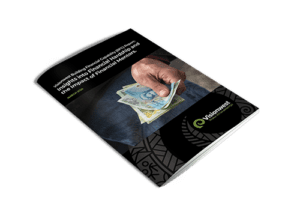 The report, Visionwest Building Financial Capability (BFC) Report: Insights into Financial Hardship and the Impact of Financial Mentors, interviewed current clients of Money Mentors, Visionwest’s financial mentoring service. Of those interviewed, the majority felt the extent of their present poverty such that, when short of money, they would go without items or services most people consider essential. These included medical visits, dental visits, or prescriptions (61%) or food (57%). Others would delay or skip bill payments and debt repayments. Most clients (76%) reported going without two or more of these essential needs and all clients reported having significant levels of debt that needed to be paid off with seven out of ten survey participants having two or more types of debt.
The report, Visionwest Building Financial Capability (BFC) Report: Insights into Financial Hardship and the Impact of Financial Mentors, interviewed current clients of Money Mentors, Visionwest’s financial mentoring service. Of those interviewed, the majority felt the extent of their present poverty such that, when short of money, they would go without items or services most people consider essential. These included medical visits, dental visits, or prescriptions (61%) or food (57%). Others would delay or skip bill payments and debt repayments. Most clients (76%) reported going without two or more of these essential needs and all clients reported having significant levels of debt that needed to be paid off with seven out of ten survey participants having two or more types of debt.
The full Visionwest report can be downloaded here.
Poverty and mental health
With this as a backdrop, it’s not surprising that the impact of poverty goes well beyond simply going without certain items. Behind this deprivation, the influence of poverty is such that almost three quarters (74%) of participants felt their financial situation had negatively impacted either their mental health or that of their whānau.
Mary-Rose, a client of Money Mentors said, “[If not for my Visionwest financial mentor] I doubt I’d be able to cope mentally. Being poor is just so soul-destroying and stressful. When you’re deep in debt, you’re trapped, there’s no way out of it. It’s like being shoved into a little box that you cannot escape from. But that’s in the past now. Because of Visionwest, I’ve got a spring in my step.”
The positive impact of financial mentoring and budgeting
While these trends are concerning, the data shows that, for those clients surveyed in this report, engaging with financial services like Money Mentors has a significant and positive impact resulting in improvements in their financial wellbeing, financial literacy, and mental health.
Participants in the Money Mentors Survey concurred with Mary-Rose (above). The survey revealed that:
- All clients reported that their mental health (or that of their whānau) had been positively affected through meeting with a financial mentor from Money Mentors.
- All clients reported a sense of achievement regarding their financial situation through meeting with Money Mentors.
- Almost all clients reported having future financial aspirations. This is evidence of a breakthrough in financial goalsetting as a key outcome of service engagement.
The way ahead
The report’s findings are sobering as one considers the negative impact that financial hardship has on both the mental and physical health of those experiencing it and the ultimate effect on wider society.
However, the report also points to an answer and affirms the effectiveness of budgeting and financial mentoring programmes throughout Aotearoa New Zealand. Visionwest, as a result of this study would encourage:
- Further investigation and investment into understanding the size, scope and complexities associated with financial hardship in Aotearoa.
- Further investigation into the scope, size, and role of the BFC sector and the importance of financial mentoring services to address rising financial need.
- Further research and evaluation into the associated impact of financial hardship on physical health, mental health, and other quality of life factors.
The full Visionwest report can be downloaded here.
Click here to read and hear the inspirational story of a Visionwest Money Mentors client.



